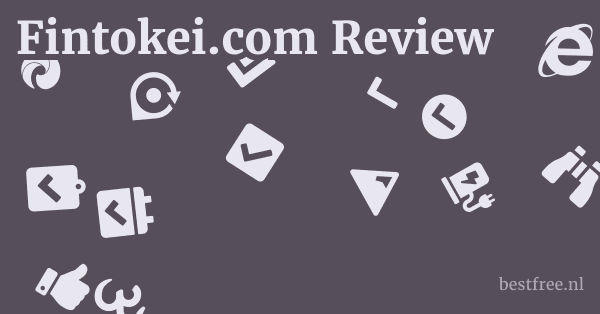The term “prop firm” or “prop trading” generally refers to proprietary trading firms that trade their own capital in financial markets to generate profits. However, Fintokei.com explicitly states it’s “not in a traditional sense” and focuses on “evaluation” and “education.” This distinction is critical from an Islamic ethical perspective. Traditional prop trading, if structured with real, tangible assets and not involving interest-based loans or excessive speculation (gharar), could potentially be structured Islamically. However, Fintokei’s model, where actual trading does not occur and payouts are linked to fees, introduces significant issues.
Read more about fintokei.com:
Fintokei.com Review & First Look
The Element of Maysir (Gambling) in Fintokei.com’s Model
In Islam, maysir, or gambling, is strictly prohibited. Maysir involves a game of chance where money is exchanged without an equivalent counter-value, and the outcome is uncertain. Key characteristics include: payment of a fee to participate, the possibility of winning a prize, and the prize being derived from the pooled contributions of participants. Fintokei.com’s system aligns alarmingly well with these characteristics:
- Payment of a Fee: Users pay a “one-time fee” (ranging from €44 to €2,399) to enter the “evaluation.”
- Possibility of Winning a Prize: Successful participants receive “payouts.”
- Prize Derived from Pooled Contributions: The website clarifies that it does not engage in real trading or receive client deposits. This implies payouts are generated from the fees paid by participants.
This structure creates a zero-sum or negative-sum game for the participants as a whole, which is a hallmark of gambling.
For some to win, others must lose their entry fees, without any real wealth creation.
The Problem of Gharar (Excessive Uncertainty)
Gharar, or excessive uncertainty, is another prohibitory factor in Islamic transactions. While a degree of uncertainty is inherent in all transactions, excessive uncertainty, where the outcome or the subject matter of the contract is unknown or unpredictable to a harmful degree, renders a contract void. In Fintokei.com’s case:
- Uncertainty of Outcome: Participants pay a fee with the uncertain outcome of whether they will receive a payout. Success depends on navigating a simulated environment according to arbitrary rules, not actual market dynamics or a tangible product/service exchange.
- Lack of Tangible Value Exchange: The “service” is an evaluation in a simulated environment, with “payouts” not tied to actual market gains. The user is paying for a chance at a payout, not for a distinct, valuable service that stands alone. The payout is contingent on success in the challenge, making the primary motive for paying the fee the uncertain prospect of winning.
Riba (Interest) and its Potential Implications
While Fintokei.com doesn’t explicitly involve loans or traditional interest, the nature of its “payouts” needs scrutiny regarding riba. If the payouts are merely a redistribution of fees without genuine value creation, they could resemble a form of unjust gain. Riba isn’t just about interest on loans. it encompasses any unjust or exploitative increase in wealth without genuine effort, risk-taking, or productivity. Since the “profits” aren’t generated from actual market trading, but from fees paid by other participants, it raises questions about the legitimacy of such an increase in wealth. Fintokei.com Review & First Look
Ethical Alternatives for Skill Development and Wealth Generation
Given the ethical concerns, it’s crucial to highlight alternatives that align with Islamic principles for skill development and wealth generation:
- Halal Entrepreneurship & Business Ventures: Focus on building businesses that produce tangible goods or offer genuine services. This could be anything from e-commerce (selling physical products), digital services (web development, graphic design), or consulting. These ventures involve real effort, risk, and value creation.
- Ethical Investment Funds (Sukuk, Halal Stocks): Investing in Sharia-compliant funds, Sukuk (Islamic bonds), or a diversified portfolio of halal stocks. This involves investing in real companies that operate ethically and produce permissible goods/services, sharing in their profits and losses.
- Vocational Training & Skill Acquisition: Rather than speculative “trading challenges,” invest in vocational training that leads to certified skills in high-demand fields like software development, cybersecurity, or renewable energy. These skills directly contribute to one’s employability and income generation through legitimate means.
- Community-Based Microfinance & Cooperative Models: Participate in or establish cooperative financial models that support small businesses and productive ventures within the community, based on principles of mutual aid and risk-sharing, avoiding interest.
|
0.0 out of 5 stars (based on 0 reviews)
There are no reviews yet. Be the first one to write one. |
Amazon.com:
Check Amazon for The Nature of Latest Discussions & Reviews: |


Leave a Reply